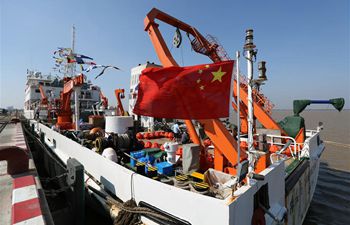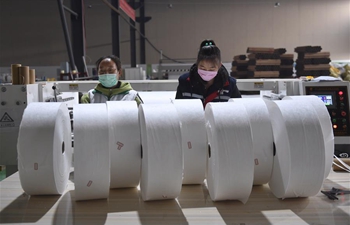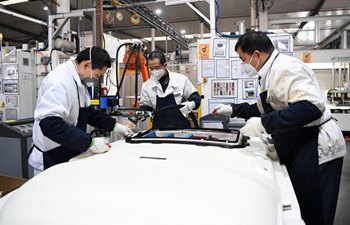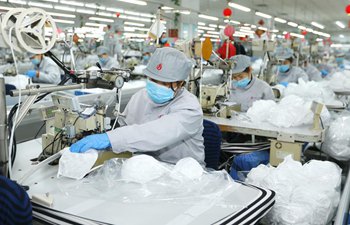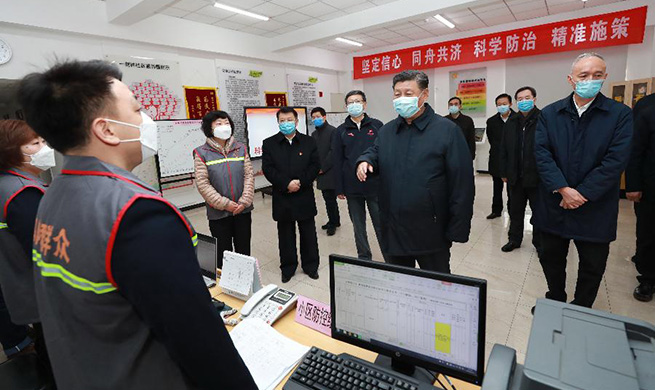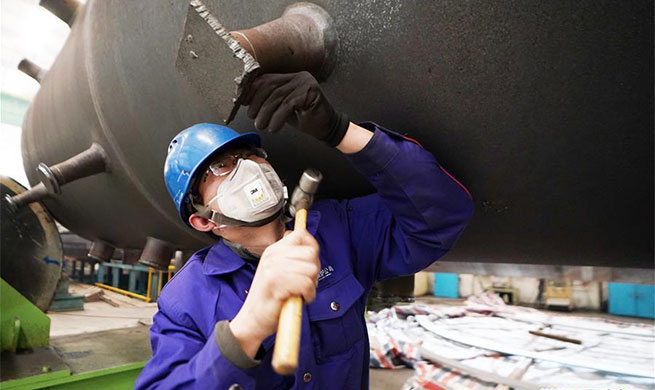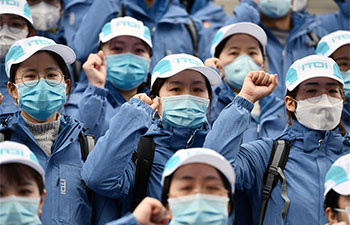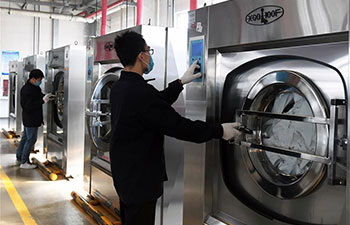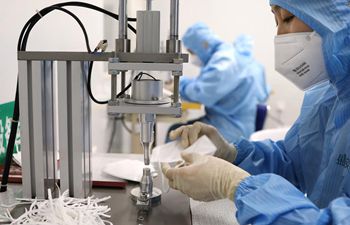ROME, Feb. 13 (Xinhua) -- Italian agricultural sector remains the largest in the European Union (EU), a new report from a leading Italian industry group said, but it trails France and Germany in terms of the overall value of agricultural production.
According to research from the General Italian Confederation of Agriculture, best known as Confagricoltura, there are 1.13 million people employed in the country's agricultural sector last year, making Italy the only country in the EU with more than 1 million agricultural sector workers -- a status it has held steady over the last decade.
But in terms of overall value produced by the agricultural sector, Italy ranks third, with agricultural production worth 56.6 billion euros (62.8 billion U.S. dollars) in 2019. The first two are France and Germany. It was the first time in four years that the value of Italy's agricultural sector production fell below that of Germany.
In comparison with Italy's 1.13 million agricultural sector workers, France has 741,000 such workers and Germany 473,000.
"There are many factors at play when it comes to Italy's rankings in terms of agricultural workers and the value of agricultural production, including the fact that 90 percent of Italy's agricultural sector workforce is made up of part-time workers," Roberto Caponi, head of the labor section for Confagricoltura, told Xinhua. "That is higher than in other major European countries. That helps inflate the total number of workers without necessarily adding to total production."
But Caponi said the sector suffers from other issues that keep Italy's agricultural sector from being more effective.
He mentioned the relatively small size of Italian farms -- statistics from the European data entity Eurostat show that just 4 percent of Italian farms include more than 50 hectares of land, compared to around 40 percent in France -- as well as a lower-than-average penetration for mechanization and the use of digital technologies. Because of taxes and other fees, labor costs in Italy are also higher than the European average, Caponi said.
Factors mentioned by other analysts include higher energy costs and less efficient transportation networks compared to those in other countries.
"The agricultural sector in Italy is very important, directly and indirectly counting for around 3 percent of the country's gross domestic product," Caponi said. "It should be a higher priority for the sector to modernize."
But according to Denis Pantini, head of the agro-industry division at the economic research consultancy Nomisma, there are some distortions that come from measuring the size of the agricultural sector based on jobs.
"Overall, Italy has less land under cultivation than France or Germany or even Spain," Pantini said in an interview.
"Italy gets a lot of benefits from high-end agricultural products like wine and olive oil that help tip the scales a little in the country's favor," Pantini said. "But that shouldn't hide the fact that long-term reforms are needed in order to incentivize more innovation and efficiency that will help make the sector more competitive."




